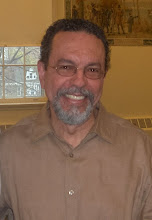I was extremely disappointed in one recent on-line exchange between musicians and music listeners and connoisseurs. The object of the exchange involved an incorrect attribution to a certain musician of a recent recording. The exchange would have been innocuous had it not been for a disparaging comment made by one of the participants about the musician whose band was incorrectly identified. Worse, the disparaging commentator was the leader of the band in the recording. Thus, his public insult was also an expression of self-aggrandizing arrogance.
I read recently that America’s first president, George Washington, transcribed Rules of Civility & Decent Behaviour In Company and Conversation some time before he was 16 years old. The first rule in the book was “Every Action done in Company, ought to be with Some Sign of Respect, to those that are Present.”
Another website told me that etiquette began in prehistoric times as a result of increasing interaction between people. According to this account, manners made life “easier and more pleasant,” and as a result “early civilizations developed rules for proper social conduct.” The French led the way during the 1600-1700s, not so much to get along better with others but to avoid boredom. Using the French word for “ticket” as a basis, they called the elaborate set of prescriptions for proper manners “etiquette.” The implication is clear: manners would be a person’s ticket into socially engaging and refreshing interaction. Indeed. “Since the 1960s,” the site adds, “manners have become much more relaxed. Etiquette today is based on treating everyone with the same degree of kindness and consideration, and it consists mostly of common sense.”
Did George Washington really transcribe Rules of Civility & Decent Behaviour or is this another “cherry tree” myth about the president’s early life? The anecdote is in character but its veracity is beside the point. What matters is that the first rule in this book of manners is that “respect” towards others, especially when they are present, should be paramount. Let’s call this “Washington’s First Rule of Social Conduct,” even if he was not the author.
Is it true that civilization produced manners? If Rousseau were alive today, he would say “No” since, in his view, civilization corrupted human nature (on the other hand, civilization was the result of a social contract---Rousseau is full of contradictions). Hobbes would also disagree, but his take would be that manners were the product of a God-awful type of interaction---the war of all against all---in the state of nature; yes, civilization did produce codes of conduct but only after the protections provided by absolute power made people comfortable enough to interact with each other without fear that “nasty and brutish” behavior would make their life on earth unduly short.
A third website I visited, titled Etiquette From the Past, consisted of excerpts from the book Youth's Educator for Home and Society, published in 1896. One of the prescriptions included in this volume could be considered a variation of Washington’s First Rule. It reads: “The tongue is a little member, but it should be jealously guarded. Harsh and cutting things should not be said after marriage, any more than before. Coarse and unrefined conversation can never be indulged in without a loss of respect which involves a loss of influence and power.”
Manners have certainly changed since the 1960s but I don’t think that the generalization that best describes the changes is that we now treat everyone with the same degree of kindness and consideration. The loophole in Washington’s First Rule is that respect needs to be shown to “those that are present.” The internet broadens that loophole because it is both presence and absence; just like the dog in the New Yorker cartoon who says to the cat: “On the internet nobody knows you are a dog,” it seems that participants in on-line forums feel that they can say anything that comes to mind and that this will reveal nothing about them because no one can actually see them as they say it. In fact, the whole world is witness to their statements, including those whom they talk about, but the consequences that would follow interaction in real, physical time, are not there. Therefore, they can act like dogs under cover of anonymity and with impunity. On second thought, while those who disparage others on-line are seemingly protected by cybernetic distance/absence, when they say "harsh and cutting things" about others they do risk losing not just the respect of their audience but also their own “influence and power.” Thus, the tongue “should be jealously guarded,” as the 1896 book cited above suggests, especially on-line and not just after marriage.
Sunday, December 20, 2009
Subscribe to:
Posts (Atom)


